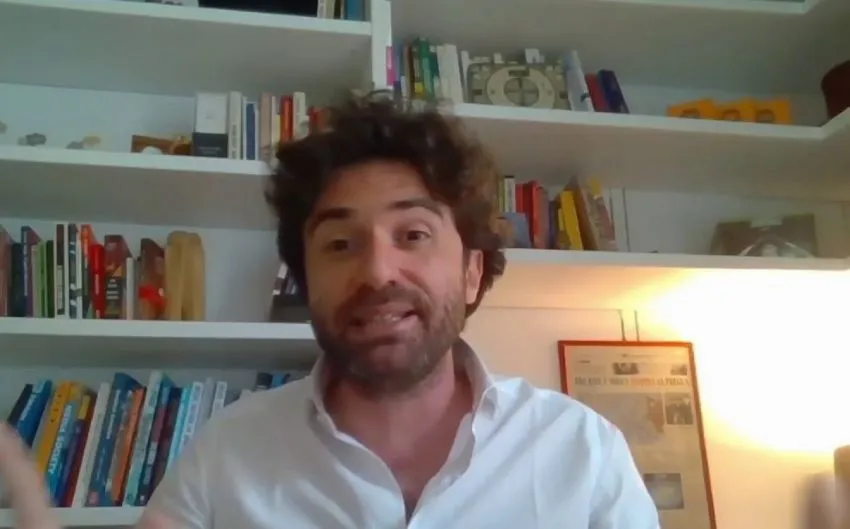
Seventy Years of Television in Italy – Three Anniversaries in One
The entire television industry in Italy is celebrating, and – as is the case around the world – remains in good shape. Of the 70 years it carries on its shoulders – a few less than in other important markets, such as the UK and US – it has spent 50 years at the center of public debate and the collective imagination, holding on to its position as the country's leading cultural industry with its extraordinary ability to inform, entertain, educate and persuade. Additionally, it imposes its languages and mechanisms on the ways of the world; Edmondo Berselli in 2008 wondered "if contemporary democracy was closer to a format [on television, NdA] than to a structured set of rules"[1]. On its 50th anniversary, however, dark clouds appeared on the horizon, and the 2000s were ushered in under a shadow of some concern – digital disruption had become a serious matter. The supply boom, due to the introduction of digital terrestrial television, seemed unable to compensate for the competition of new media in terms of business and consumption, only to find over time that it was precisely digital disruption that would set the stage for television at its prime, which is what we are experiencing today. Jannacci was right: la televisiun la ga na forsa de leun. Of course, traditional players such as RAI and Mediaset have suffered a bit from the arrival of streaming platforms including Netflix and Amazon Prime, but the television industry is still the same with the audience and business remaining robust.
In Italy, the sector has been growing since the 2020 slowdown, with a total turnover of €8.5 billion in 2021, equal to 0.5% of national GDP.[2] Free-to-air TV revenues are growing and pay-TV revenues are falling, with traditional pay TV channels losing 14.9% year-on-year to streaming platforms, up 32%.[3] The only real change of pace in the last 20 years has occurred in terms of the impact on public opinion, in a scenario where television still plays a leading role, however, only second to new media. It is the spirit of the times: we have already witnessed other passings of the baton, just think of what happened to radio with the advent of television, and it is difficult to imagine that this time it could have gone differently.
Of course, RAI is also celebrating 70 years of public television, studded with great successes, some flops, periods of magic and courage along with some difficult ones – very difficult ones – while always remaining at the forefront of Italian culture. RAI's anniversary is celebrated with a bitter aftertaste, though, as Mediaset achieved two important milestones at the end of 2023: an increasing lead ahead of RAI for the so-called commercial target (15-64 years old) and the first overtaking ever in terms of absolute ratings over 24 hours[4]. Nonetheless, RAI continues to lead in the news ratings – considered a key asset for any broadcaster[5] – and, above all, it has relearned to speak to a young audience, with variously declined products, from Il Collegio, Mare fuori and others, which have achieved flattering results for the target between 15 and 24 years old[6]. The success of the RaiPlay platform is also undeniable, with more than 23 million registered users[7]. It offers easy access to a huge catalog of content, creating interesting synergies with linear programming (two brilliant examples: Sanremo and Fiorello's Viva Rai2) and contributing to the company's ratings with more than 154 million monthly views[8]. A sad note is that the usual governance issues, such as partisan control of the institution, have recently been joined by others, including the establishment of genre directorates instead of network ones, in a reform designed with a view to promoting speed and operational efficiency but heralding a necessary albeit non-painless rebalancing of power.
Not to mention the license fee, of which the public is not a fan and is in the crosshairs of a certain faction of politics as it is essentially seen as unfair taxation since RAI also enjoys substantial advertising revenues. However, these positions do not consider the fact that the mission of the public service – with all its many important implications – could not be pursued without a fee that ensures the coverage of content and services that take on a more distinctly social, cultural or educational nature, and which would not be sustainable on the free market. In fairness, it should be pointed out that it is precisely advertising that allows us to pay the lowest public service radio and television license fee in Europe – €70 per year starting from 2024, compared to the BBC's £169, to be clear.
Television is celebrating, RAI is celebrating, and in truth we should be celebrating as well because, if it is true that television is so capable and timely in representing, reciting and sometimes distorting reality – a reality so incidental and pervasive in the collective imagination and experience – then it is also true that we are the television we watch. Or in other words, to paraphrase a famous show by Minoli, we are television – whether we like it or not.
(Reminder for us to blow out more candles: Italian radio celebrates its 100th anniversary on 6 October of this year)
[1] Edmondo Berselli – La politica è un format, La Repubblica, 18/09/2008
[1] Area Studi Mediobanca – Il settore media & entertainment (2019 – 2022), 2 febbraio 2023
[1] Area Studi Mediobanca – Il settore media & entertainment (2019 – 2022), 2 febbraio 2023
[1] Comunicato stampa Media For Europe del 29 dicembre 2023
[1] AGCOM – Osservatorio sulle comunicazioni N.4/2023
[1] Massimo Scaglioni, Mare fuori: le ragioni di un successo, Cinematografo, 14 marzo 2023
[1] Dato al 30 giugno 2023 – RAI, Bilanci sperato e consolidato intermedi al 30 giugno 2023.
[1] Dato al 30 giugno 2023 – RAI, Bilanci sperato e consolidato intermedi al 30 giugno 2023.